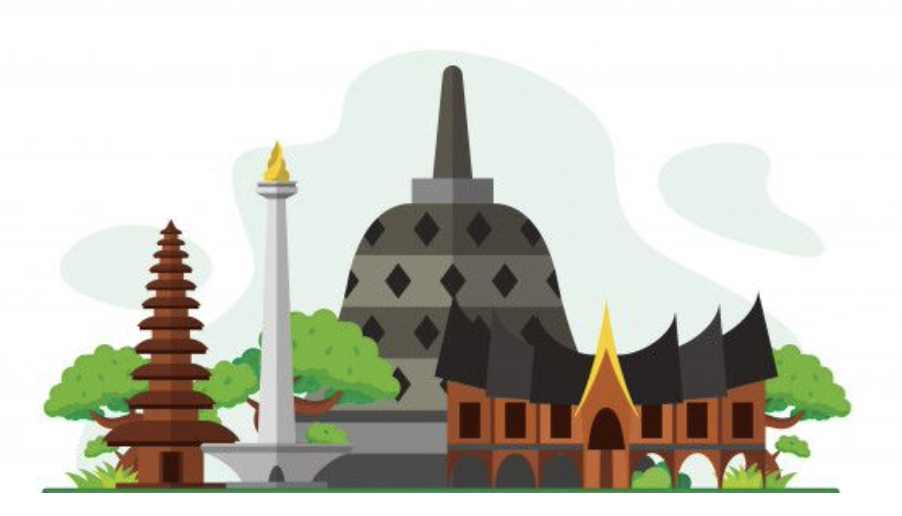Cultural Policy: Some initiatives and trends to manage cultural diversity in Indonesia
DOI:
https://doi.org/10.31947/etnosia.v7i2.24827Keywords:
Cultural policy, Adat (custom), National culture, Cultural development, Invented traditionAbstract
This article discusses the cultural policy in the state level. The discussion on cultural policy cannot be separated from the idea of the state's interest in maintaining citizens' trust in government programs. The strong role of the state in formulating cultural policies is often seen as the hegemony of the state over society, in the perspective of governmentality, as if the state has the power to determine what its citizens may do. In Indonesia, cultural policies have also been tried to be implemented from time to time. However, some of our cultural policies tend to look at the macro and general aspects. Local initiatives are indeed seen, but in the end, macro ideas are taken into consideration. Besides being aimed at tourism, the development of local culture is also carried out by referring to certain standards that come from outside the community context. One of the standards that is currently popular is to identify a tradition and then trying to convince the public that the tradition has the right to be included in the category of national intangible cultural heritage. I try to reformulate cultural policies, in the context of Indonesia, which has diverse traditions, amid this global change, as an effort to maintain the dynamic of local traditions. It can be pursued primarily by protecting traditional (adat) communities and their cultural works. It is not a question of 'extinction' or 'sustainability' but how these traditions can develop in the community, become part of the community, and rediscover its relevance to conditions outside the rapidly growing community.Downloads
References
Bell, D., & Oakley, K. (2014). Cultural policy. Routledge
Bennett, T. (2001). “Acting on the Social: Art, Culture, and Government”. In Meredyth, D., & Minson, J. (Eds.). Citizenship and cultural policy. Sage.
Bereson, R. (2003). The operatic state: cultural policy and the opera house. Routledge.
Bok-rae, K. (2015). Past, present and future of Hallyu (Korean Wave). American International Journal of Contemporary Research, 5(5), 154-160.
Bonet, L., & Négrier, E. (2018). The participative turn in cultural policy: Paradigms, models, contexts. Poetics, 66, 64-73.
Burlyuk, O. (2020). Cultural policy in South Korea: Making a new patron state: by Hye-Kyung Lee, London and New York, Routledge, 2019, 170 pp.,£ 115 (hardcover), ISBN 9781138831353 (hbk), ISBN 9781315736617 (ebk).
Gao, I. A. (2021). Social Policies for Older Indigenous People in Taiwan. Gerontologia.
Hadley, S., & Belfiore, E. (2018). Cultural democracy and cultural policy. Cultural Trends, 27(3), 218-223.
Hesmondhalgh, D., & Pratt, A. C. (2005). Cultural industries and cultural policy. International journal of cultural policy, 11(1), 1-13.
Hong, K. W. (2019). Culture and Politics in Korea: the consequences of statist cultural policy.
Hou, C. C., & Kuo, T. (2019). Home care services for indigenous population in Taiwan: cultural and socio-structural implications for long-term care policy. Journal of gerontological social work, 62(3), 306-323.
Howard, K. (2020). The evolution of cultural policy and practice in North Korea, seen through the journal Chosŏn ŭmak [Korean music]. In Routledge Handbook Of Contemporary North Korea (pp. 251-265). Routledge
Huong, V. T. T. (2012). Basic Study on Promoting Korean Food Hallyu in Vietnam. Jin, D. Y. (2018). The Korean Government’s New Cultural Policy in the Age of Social Media. Asian Cultural Flows: Cultural Policies, Creative Industries, and Media Consumers, 3-17.
Jin, D. Y. (2019). Transnationalism, cultural flows, and the rise of the Korean Wave around the globe.
Lawrence, S. V. (2021). Taiwan: Political and Security Issues. Library of Congress Washington DC.
Lee, H. K. (2018). Cultural policy in South Korea: Making a new patron state. Routledge.
Lee, H. K. (2018). The Korean Wave, encountering Asia and cultural policy. In Asian Cultural Flows (pp. 75-89). Springer, Singapore.
Lee, H. K., & Zhang, X. (2021). The Korean Wave as a source of implicit cultural policy: Making of a neoliberal subjectivity in a Korean style. International Journal of Cultural Studies, 24(3), 521-537.
Lerner, Daniel. "The passing of traditional society: Modernizing the Middle East." (1958).
McNaught, D. (2021). The state of the nation: contemporary issues in Indigenous language education in Taiwan. In Taiwan’s contemporary Indigenous peoples (pp. 128-146). Routledge.
Meinhof, U. H., & Triandafyllidou, A. (2006). Transcultural Europe: An introduction to cultural policy in a changing Europe. In Transcultural Europe (pp. 3-23). Palgrave Macmillan, London.
Michell, H. (2021). Culture is power in dynamic Korea: soft power and government involvement in the Korean Wave. In Routledge Handbook of Contemporary South Korea (pp. 177-190). Routledge.
Miller, T., & Yúdice, G. (2002). Cultural policy. Sage.
Mulcahy, K. V. (2006). Cultural policy: Definitions and theoretical approaches. The journal of arts management, law, and society, 35(4), 319-330.
Nesterova, Y., & Jackson, L. (2018). Understanding the ‘local’in indigenous Taiwan. International Education Journal: Comparative Perspectives, 17(3), 55-66.
Pietrewicz, O. (2020). The “Korean Wave” and the Expansion of South Korean Culture.
Supardi, N. (2013). Bianglala budaya: rekam jejak 95 tahun Kongres Kebudayaan, 1918-2013. Direktorat Jenderal Kebudayaan, Kementerian Pendidikan dan Kebudayaan.
Tanko, M. (2020). Is farming a belief in Northern Ghana? Exploring the dual-system theory for commerce, culture, religion and technology. Technology in Society, 63, 101339.
Throsby, D. (2010). The economics of cultural policy. Cambridge university press. Van Wieren, G. (2018). Food, farming and religion: emerging ethical perspectives. Routledge.
Wang, S. L. (2019). Museums, heritage and the politics of pursuing indigenous rights in Taiwan. Asian Education and Development Studies.
Wu, I. C. (2019). Preliminary Study on Improving the Management and Environmental Planning of Taiwan Indigenous People Cultural Park.
Yeh, S. L. (2012). The process of kinship in the paternal/fraternal house of the Austronesian‐speaking Amis of Taiwan. Oceania, 82(2), 186-204.
Yeh, S. L. (2013). Pig sacrifices, mobility and the ritual recreation of community among the Amis of Taiwan. The Asia Pacific Journal of Anthropology, 14(1), 41-56.

Downloads
Published
How to Cite
Issue
Section
License
Copyright (c) 2022 ETNOSIA : Jurnal Etnografi Indonesia

This work is licensed under a Creative Commons Attribution-NonCommercial 4.0 International License.















1.png)





